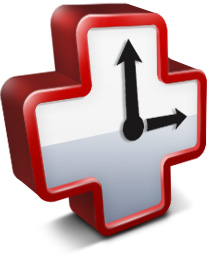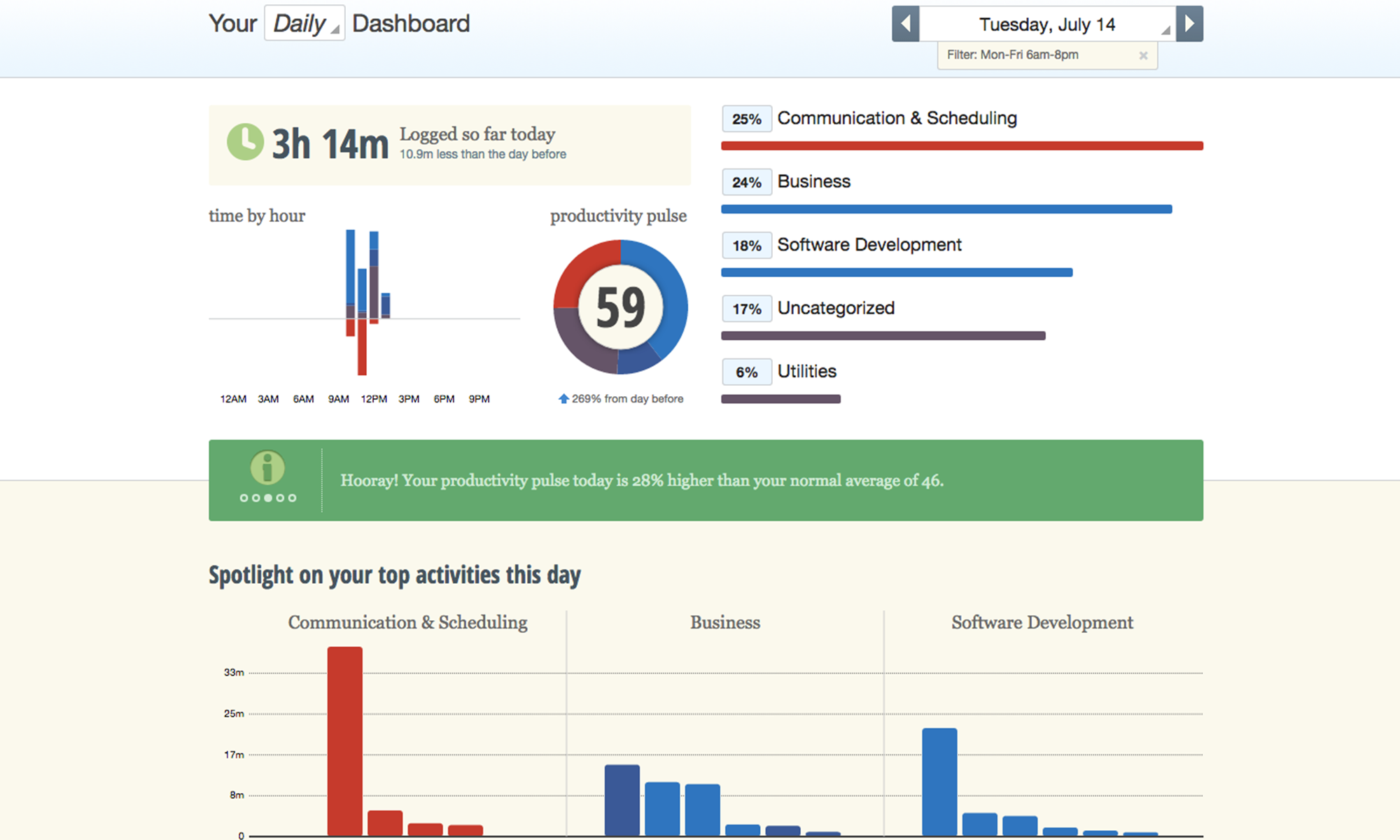
If I have to have meetings or do busy work I should schedule it around lunch time, dinner time, or 3 p.m., since I'm least likely to be productive at those times. This suggests that I should schedule my most important work to be done right when I wake up, right after lunch, and then a bit before dinner.
Rescuetime com how to#
You can decide how to rate each activity based on what you do and do not want to spend more time on. What about that peak from 10-11 a.m.? That’s when I go to the gym most days, which I log as being "very productive". through 10 a.m., then again after lunch around 1 p.m., and then a little later at 4 and 5 p.m. For me, it shows that I'm at my best right when I start work at 8 a.m. Great! Now you know what hours you’re most productive. If you want to see more, you can filter by the month or see how you’re trending over time. Peaks of light blue are highly productive hours, peaks of grey are neutral hours, and peaks of red are highly unproductive hours. This shows you a breakdown of how productive you are each hour.

If you're logged in, click "Reports" in the menu bar and select "Productivity". RescueTime's core function is to make it easy to see when you're being most productive. Have some data to work with? Great, now let's get started. RescueTime is an investment product-the longer and more actively you use it, the more valuable it will be to you. Since I've been using it for more than four months, I can see not only my daily and weekly trends, but also how I've changed week to week and month to month. Assuming you installed it and signed-in, it should be running fine, but you might want to check your dashboard after an hour or two of working to see that it's logging what you've done. Now that you have everything installed, let RescueTime start recording data for a few days. This latter feature, it's worth noting, is what best-selling author and startup investor Tim Ferriss calls is his best time-saving trick.
Rescuetime com Offline#
To get more from RescueTime, check out the service's premium account ($9/month), which gives you helpful features like the ability to track your offline time and block distracting websites.
Rescuetime com android#
Don't worry though if you don't use Chrome, this additional tracking isn't necessary.įinally, if you have an Android phone, the mobile app shows you where your time on your phone is going, as well. Once that's done, log into the app on your computer with your credentials and it will start tracking-no maintenance needed.įor a more complete look at where your time is going, the Chrome browser extension helps, too.
Rescuetime com install#
This should only take you a few minutes.Īs soon as you finish signing up, install RescueTime on your operating system. If you're not yet a RescueTime user, set up an account and then install the app on your computer(s), browser, and mobile phone. How to Find Your Peak Productive Environment 1. Instead of guessing at what's helping, you can deduce what makes up your peak productive environment. Now, instead of guessing at how our productivity is changing, you can see it clearly and compare "experimental" weeks or months to where you are normally. RescueTime is by far the best one I've found.

When I started this quest for my peak productive environment, I knew I would have to dig for it, and I knew I would need a good tool to help me. Instead of trying to remove all joy from your life and operate as a productivity machine for 16 hours each day, you should find your best 6 to 8 hours and the best environment for those 6 to 8 hours.īut identifying that period of your day isn't easy, and trying to do it without data will likely lead to poor assumptions. You become more productive by knowing when to take breaks, and when to focus your energy on the biggest tasks. You don’t become more productive by working nonstop. Not only do you get more done in the first situation, but you're saving more than four hours of your day for other interests. Compare that to working for 12 hours each day at 30-60% of your capacity.

It's common for the most successful individuals to only work for 4.5-8 hours a day, while functioning at 80-100% of their capacity during that time. Scientific research has demonstrated the problems with working more than 40 hours per week, yet people still try to burn the midnight oil.


 0 kommentar(er)
0 kommentar(er)
